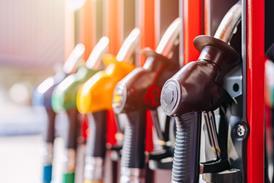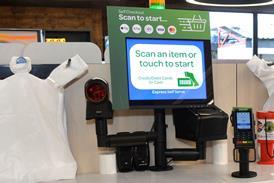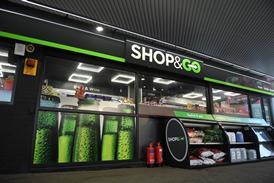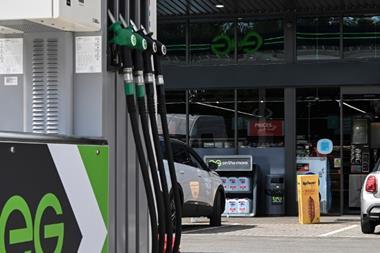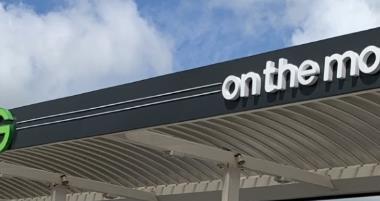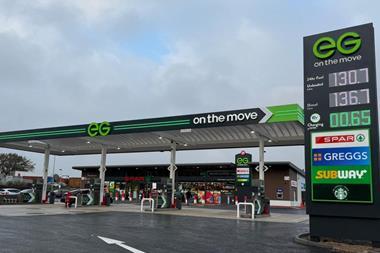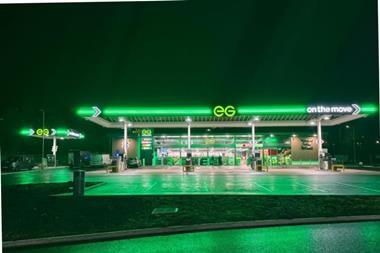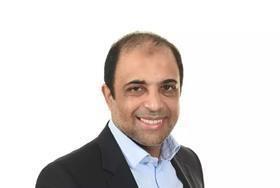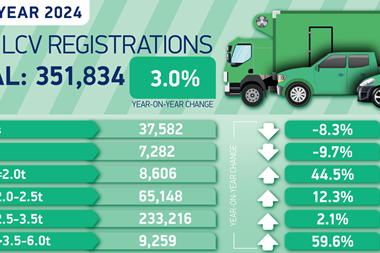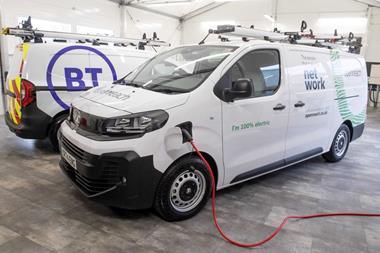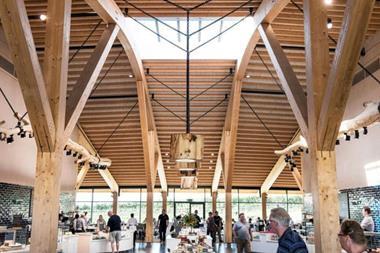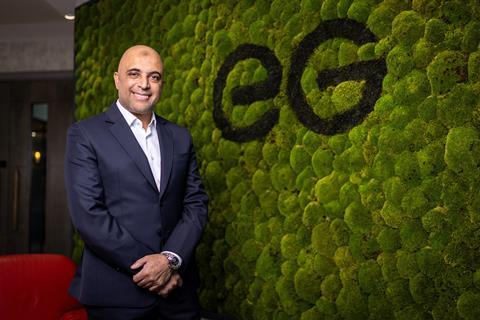
“It’s a journey” is a phrase that Zuber Issa resorts to frequently to describe a career that has taken him from helping out in his first-generation immigrant father’s forecourt, through starting his own petrol retailing business with a single site in Bury, to running, with brother Mohsin, a worldwide fuel and foodservice group with around 6,000 sites and a footprint in 10 countries, as well as, since 2020, supermarket giant Asda.
Last year, that remarkable journey took a dramatic new direction when he sold his personal Asda stake and broke from the family EG Group business – as it moved to go public in New York – to start almost from scratch again at the sharp end of the UK forecourt trade.
Since launching with 34 EG On The Move-branded sites – spun out of the EG Group UK forecourt business transferred to Asda – he has already added 13 new-to-industry (NTI) locations, complete with fast electric vehicle charging and foodservice concessions. He plans to launch up to 20 more this year.
Since his intentions to step down as joint chief executive of EG Group and go solo emerged in the autumn, speculation has been rife about the scale of his ambitions. This was especially the case after it became known that he had appointed a real estate agency to find him up to 120 potential new roadside sites, and he started opening NTI forecourts outside of his north west of England territory, in Sussex, the Midlands and Scotland.
That question was partly answered over the weekend when it was confirmed that he plans to acquire around 100 UK forecourts from Dublin-based group Applegreen. Significantly, the purchase of the UK mainland part of the petrol filling station business will give Issa’s fledgling network a stronger presence in the south of the UK, and a turnover in excess of £1 billion.
So, what motivates a 52-year-old billionaire who could retreat into a semi-retirement of good works, hands-off investments, and being an industry grandee to return to the hurly-burly of entrepreneurship? The truth is he loves it and has done since he “caught the bug” working tills in his dad’s forecourt as a teenager. His mission, in partnership with his brother, was to take forecourt retailing to a new level.
“For 20 years we were all about developing destination sites, and that is what we are still doing. It’s a business that once you are in it you don’t want to get out of it. You see that with people who leave and then come back in,” he says. “It is a good industry to be in and something that we have done through recession, through Covid. You’ve got a purpose. It’s about serving people daily.”
The business relationship between Issa and EG Group remains complex. Although he is no longer a shareholder in Asda, he retains a 25% equity stake in EG Group alongside Mohsin and private equity group TDR Capital, and he is a non-executive director, sharing an open plan office with his brother. However, EG On The Move is an entirely separate business that Zuber Issa bought from the original company for around £200 million and now owns outright.
EG Group is also heading in a new direction with an initial public offering (IPO) that will allow TDR to cash in on its 10-year collaboration with the brothers. Its orientation will move towards the US, where it owns an extensive network of forecourts and foodservice sites, alongside operations in continental Europe and Australia.
The explosion of the EG Group from a minor player in UK petrol retailing to international giant has been well documented. The brothers’ vision from the beginning was “to make convenience better” and they grew initially mainly through small acquisitions to take the network to around 80 sites by 2012. They wanted to make the sites one-stop shops working with brands, and by 2015 they had most of the foodservice names on board that they partner with today including Starbucks, Subway, and Greggs.
“We had a model and it was working. It was destination, a clean environment. We were investing in just simple things like lighting and making parking a lot better,” says Issa.
A major leap forward took place in 2012 when ExxonMobil approached the brothers with an offer to sell its UK assets. Between then and 2015, the Issas added around 250 sites to take the network to some 320 locations. Although an attempt to add ExxonMobil’s Canadian retail business failed because EG was judged not to have enough international experience, it led to a financial partnership with TDR, which did have a track record in overseas markets.
That saw EG between 2016 and 2021 acquiring forecourt operations in Australia, America, France, Germany, Italy and Benelux, where it operates a similar business mix of fuel, foodservice, and convenience to its original UK sites, now mainly under the control of Asda.
However, Zuber Issa’s heart remained in UK retailing, and, with EG Group at a pivotal point after selling most of the UK forecourt business to Asda and aiming for a stock market listing, he devised a plan to establish a UK forecourt business, funded from his own savings and the proceeds of the sale of his Asda stake. “We said everyone is on a different journey,” he says. “For me, I’d rather stay in the UK, so that is why we carved out the original 30-odd sites.”
He maintains that he has a different outlook to his brother, who has been described in the industry as a hard negotiator and generally focused on operations, with Zuber known for being the creative, with a flair for business development. “Mohsin’s future is different to mine,” he says. “We’re both at that age [Mohsin is 53] where it would be quite easy for us to sit at home and not do anything, to retire. He wants to go into different things, with start-ups and different businesses. I want to stick to what I know.”
As well as being “home”, the UK market is one where the public understand the link between retail and foodservice and filling up, he insists. “We’ve been involved in 10 other markets internationally, and in some, like Italy, convenience is still not there. People don’t understand that they can buy their weekend vegetables from the forecourt.”
While the Applegreen purchase – which comes with 1,100 staff – gives EG On The Move a national footprint, Issa admits there is work to be done. “Applegreen’s model was to be the cheapest in town on fuel. Our model is completely different. We like to invest in our sites, and create bigger sites with car parking, foodservice, and a bigger convenience offering,” he says. “On fuel, we won’t be the cheapest, but we are now closer in the market than we have ever been.
“We are saying to ourselves that it is now a new era. We have been adrift on price before because we have got the quality of the site, but now everyone has invested, so the differential can’t just now be about the investment we have made that will pull the customer in.”
The new nationwide scope of the business will make it easier to manage further strategic acquisitions as well as NTI openings. “When you have other sites around them, the management and operations of new forecourts becomes easier,” he says.
Adding Applegreen will make EG On The Move the UK’s third largest forecourt independent by number of sites after MFG and Rontec, but Issa says he is “not interested in numbers”. He adds: “We’ve never looked at numbers. Our model has always been very simple, focusing on quality and giving the consumer a well-oiled proposition that works for them.”
So what are his plans after acquiring the Applegreen sites? At the moment, he says, “we have enough to digest” with bringing the forecourts up to the specification of EG On The Move’s other petrol stations. However, with the acquisition funded by cash and no debt in the business, Issa is not stopping there. After opening 13 NTI sites in the past year, he hopes to add up to 20 more during 2025.
Also the business is well positioned for further acquisitions in the future, he says. “Having no debt in the business as we speak, or when we complete on Applegreen, is good ammunition if we wanted to scale up soon as well,” he says. “But we don’t want to get indigestion, we have enough to be getting on with for now.”
EG On The Move will continue to operate under its own branded canopy, sourcing fuel directly from terminals and wholesalers. Its favoured convenience fascia at almost all of its sites is Spar, although the business has been trialling a Co-op fascia at seven of its locations – a decision whether to stay with the brand will be taken in August. In foodservice, its key concessions will remain Greggs, Subway, Starbucks, Popeyes, Sbarro, and Cinnabon, says Issa.
On many adjacent revenue opportunities, the jury is out for Issa. In the past he has replaced valeting with drive-thrus, but says that the activity is becoming more lucrative for forecourts as the government cracks down on rogue hand-wash sites. However, he says for now on larger sites the priority for EG On The Move remains foodservice. “When we have bigger sites we rather do the food than valeting. It is what we do well. Once we have maximised food or don’t have a food partner at a site then we will look at valeting as well.” Similarly, he says, laundry and locker services “need space to breathe”.
When it comes to electric charging, he has been an enthusiast, operating over 200 chargepoints and electric stations at 42 of his 47 sites. However, he says a jolt is needed from the government to support the transition to electric, in time for when it plans to outlaw the sale of new combustion-engine-powered cars in 2030.
One venture he intends to launch in the second quarter is a proposition to independent forecourts, where – in exchange for land – EG On The Move will provide EV On The Move branded Tesla chargepoints, connect them to the grid, and maintain them. Issa’s business will retain 60% of the revenue, with the remainder going to the site-owner. In an industry leading move the package will include electric charging prices on the roadside fuel pole.
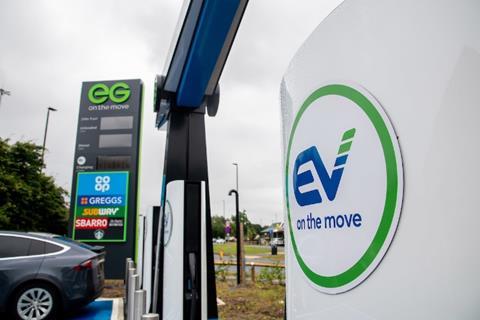
Issa’s wife Asma and eldest daughter Ammarah both work for EG On The Move, but he insists the 3,000 employees are the heart of the “family business”. “Family is not just my immediate family,” he says. “There are people who have been on this journey with me for almost 25 years. My family is everyone who works in the organisation.” In fact, he says he regrets not being able to take everyone in the former EG forecourt business with him when he set out on his own.
But legacy is clearly important to him for his four children – he has three daughters and a son. “I’m careful not to put any pressure on the kids. They should do what they want to do,” he stresses.
He still lives in Blackburn, the town he was born and grew up in. The brothers built homes in a family compound for the three siblings – they have another successful brother in property and manufacturing – and their parents, who came from Gujarat in 1968 to work in the textile mills before opening a forecourt. The Issas are now building houses nearby for their children, and Zuber Issa has invested in a dental practice for his dentist son-in-law.
He says that in many ways he has already realised his dream. “When you step back and look at what we achieved, to go from one site to 6,000, turning over £30 billion and making £1.6 billion EBITA, you have to pinch yourself. And then along came Asda with another £25 billion turnover and 150,000 people to add to the 60,000 working for EG,” he says.
While he is reluctant to talk about eventual numbers of EG On The Move sites, when pressed on whether his UK network will grow to similar levels as EG Group before selling the bulk of its UK forecourts to Asda, he concedes that “we will get to 300 that are good quality”. He says he probably has another eight years in the business before he will step back and “enjoy life and try to give back to the community that I’ve lived and worked in”.
Until then, he plans to “keep investing” in what he calls “this really lovely industry”, admitting that he still gets a kick out of introducing a new-build site. “It can take up to three years with planning and building,” he says. “So much work goes into it, and when it opens it gives me huge pleasure and enjoyment.”




